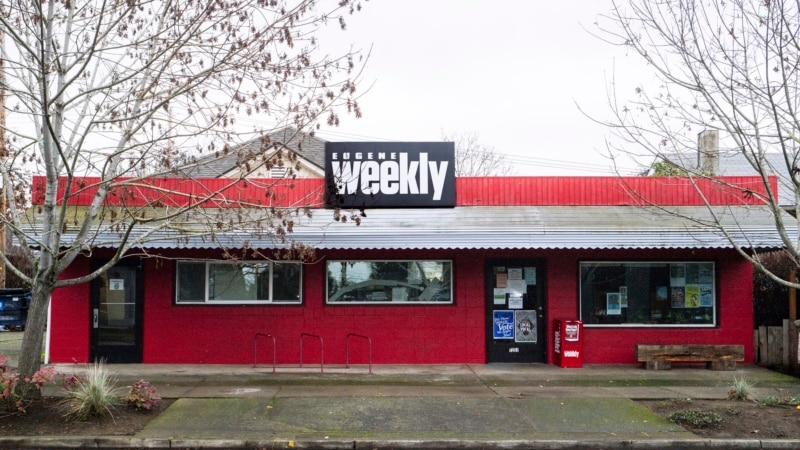An Oregon weekly newspaper that had to lay off its entire staff after its funds were embezzled by a former employee will relaunch its print edition next month, its editor said, a move made possible in large part by fundraising campaigns and community contributions.
The Eugene Weekly will return to newsstands on Feb. 8 with roughly 25,000 copies, about six weeks after the embezzlement forced the decades-old publication to halt its print edition, editor Camilla Mortensen said Saturday.
“It has been both terrifying and wonderful,” Mortensen told The Associated Press, describing the emotional rollercoaster of the last few weeks. “I thought it was hard to run a paper. It’s much harder to resurrect a paper.”
The alternative weekly, founded in 1982 and distributed for free in Eugene, one of the largest cities in Oregon, had to lay off its entire 10-person staff right before Christmas. It was around that time that the paper became aware of at least $100,000 in unpaid bills and discovered that a now-former employee who had been involved with the paper’s finances had used its bank account to pay themselves around $90,000, Mortensen said.
Additionally, multiple employees, including Mortensen, realized that money from their paychecks that was supposed to be going into retirement accounts was never deposited.
The accused employee was fired after the embezzlement came to light.
The news was a devastating blow to a publication that serves as an important source of information in a community that, like many others nationwide, is struggling with growing gaps in local news coverage.
The Eugene police department’s investigation is still ongoing, and forensic accountants hired by the paper are continuing to piece together what happened.
Local Eugene news outlets KEZI and KLCC were among the first to report the weekly’s return to print.
Since the layoffs, some former staff members have continued to volunteer their time to help keep the paper’s website up and running. Much of the online content published in recent weeks has been work from journalism students at the University of Oregon, located in Eugene, and from freelancers who offered to submit stories for free — “the journalistic equivalent of pro bono,” Mortensen said.
Some former employees had to find other jobs in order to make ends meet. But Mortensen hopes to eventually rehire her staff once the paper pays its outstanding bills and becomes more financially sustainable.
The paper has raised roughly $150,000 since December, Mortensen said. The majority of the money came from an online GoFundMe campaign, but financial support also came from local businesses, artists and readers. The paper even received checks from people living as far away as Iowa and New York after news outlets across the country picked up the story.
“People were so invested in helping us that it just really gives me hope for journalism at a time where I think a lot of people don’t have hope,” she told the AP. “When we saw how many people contributed and how many people continue to offer to help, you can’t not try to print the paper. You’ve got to give it a shot.”
The paper aims to continue weekly printing beyond Feb. 8.

